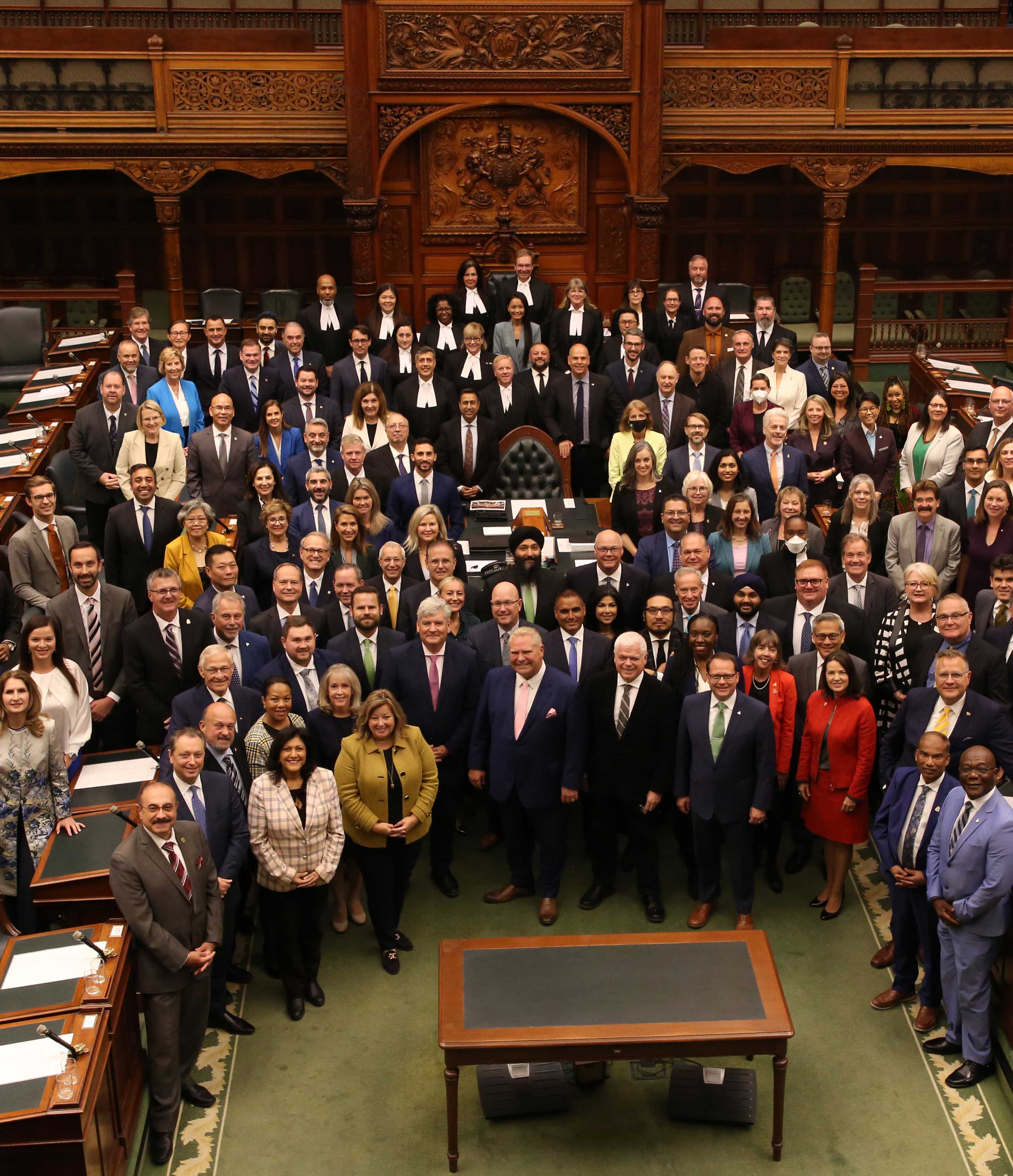Contact an MPP
You can find an MPP’s mailing address, phone number, and email address in the MPP contact information list.
If you don't know your MPP's name or your riding, use the "Find an MPP" tool on the Current MPPs page.
An MPP may have more than one office. This page can help you decide which office to contact.
The MPP as a legislator
As a legislator, an MPP attends meetings of the Legislative Assembly to take part in debating laws and making laws. They also join committee meetings where draft legislation is studied in detail. The public can also participate in committee meetings.
An MPP may have additional duties as a parliamentary assistant, House leader or whip, Speaker, or cabinet minister.
If you want to contact an MPP about a bill, government, or their work as a legislator, contact their Queen’s Park office.
MPPs who are cabinet ministers can be contacted through their ministry office. If you want to contact a cabinet minister about their work as a minister or a ministry issue, contact their ministry office.
The MPP as elected representative
As an elected representative, an MPP deals with the provincial government to solve problems in their riding. They meet with constituents. They may help constituents find services to assist them. An MPP also attends and supports community events.
An MPP may be able to help their constituents with petitions. They can present petitions about issues in their riding to the Legislature.
If you want to contact your MPP about a local or personal issue, contact their constituency office. If an MPP has more than one constituency office, contact the office that is closest to you. These offices are locally staffed and continue to be staffed even if the riding’s seat in the Legislature is vacant.

The MPP as party member
As a member of a political party, an MPP is part of a parliamentary caucus. The caucus may support the government or act as opposition and critic to the government.
Political parties often involve their MPPs in task forces and other projects. They create policies for the public to consider during an election. For information about parliamentary caucuses or policies, visit the party websites.
